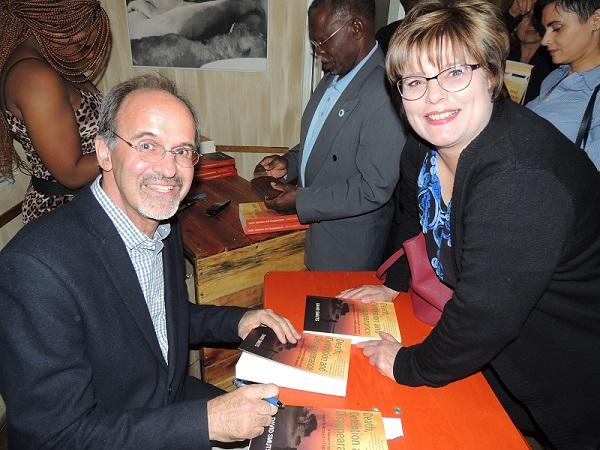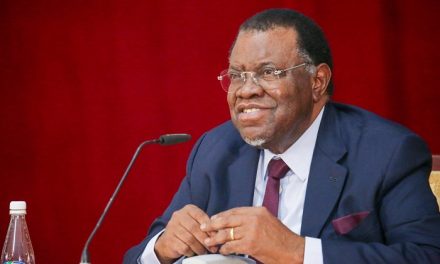
Death, Detention and Disappearance – lawyer tells the legal story of the liberation war through the lens of a series of cases and incidents

A book launch last week served as the backdrop for two of Namibia’s most senior lawyers to reminisce about the undermining of the Rule of Law before Independence in the 1980s Namibia during the liberation war.
Supreme Court judge, Justice David Smuts has just released his book “Death, Detention and Disappearance” that chronicles the often-overlooked battles for justice that was fought in the face of overwhelming odds. The narrative is a combination of personal experiences and a selection of specific court cases or incidents that reflect the glaring absence of the Rule of Law, especially for residents of the North, and for freedom fighters.
Justice Smuts writes that soon after starting in Windhoek as a legal officer in the SWA Territorial Force, he realised that there is much work to be done defending individuals who were at that stage labelled as terrorists and enemies of the state. This almost immediately placed them in legal limbo with very few of the cases actually going to court. In the meantime, a form of Martial Law was enforced by the military with very few of the cases being heard, other than those that had propaganda value.
Detention without trial was rife which led to many other abuses like torture, both physical and mental, deprivation, and murder. At this point Smuts realised that there was more work to protect the rights of detainees than defend the accused in court.
This started a long history of an endless fight against the powers of the state. The book is aptly subtitled, “A lawyer’s battle to hold power to account in 1980s Namibia,” and it relates many incidences where the battle was more procedural than juristic.
Joining Smuts in the highly informative discussion was his life-long friend and colleague, Deputy Judge President Hosea Angula.
Both worked in Windhoek as young lawyers and both took the plight of combatants in the North very seriously. Angula told some very interesting stories of the many times they had to travel to various villages in Owambo in a time “before there were any straight roads.”
The two-man team was often on the hunt for witnesses or had to take statements and affidavits but the subjects could not be traced by address or telephone, instead they had to be physically located at their villages where they resided.
Since every bush road in Owambo invariably splits after a few kilometres, the maze in which they had to travel often proved to be exhausting to the young Smuts’ patience, until Angula convinced him that a more cavalier and philosophical approach is required.
Skirmishes and differences of opinion with the military abound and Smuts wrote about several meetings with the notorious Koevoet commander, General Hans Dreyer. In their quest to find missing detainees, they often had to confront the police and military command structures which lead to spine-chilling encounters with the authorities.
At one point during the book launch, Angula told a story which offered an almost comical view of what was a very serious situation then. He said that Smuts wrote that he (Angula) was “sipping tea with Dreyer” when in fact he was scared to death. Smuts then carried the narrative forward, telling how the general completely ignored Angula for what was a very long meeting, but eventually the two of them left together with the detainees they were tracing.
Although the book covers a traumatic period in Namibia’s history, dealing with issues that have left scars to this day, it is written in an engaging, non-technical style, covering the legal developments in the North through a number of specific cases that all contributed to changing perceptions, and eventually helped paved the way for Namibia’s Independence in 1990.
“Death, Detention and Disappearance” can be ordered through Book Den.
Caption: Justice David Smuts (left) autographing a copy of his book for the Director of the Law Society of Namibia, Mrs Retha Steinmann.












































